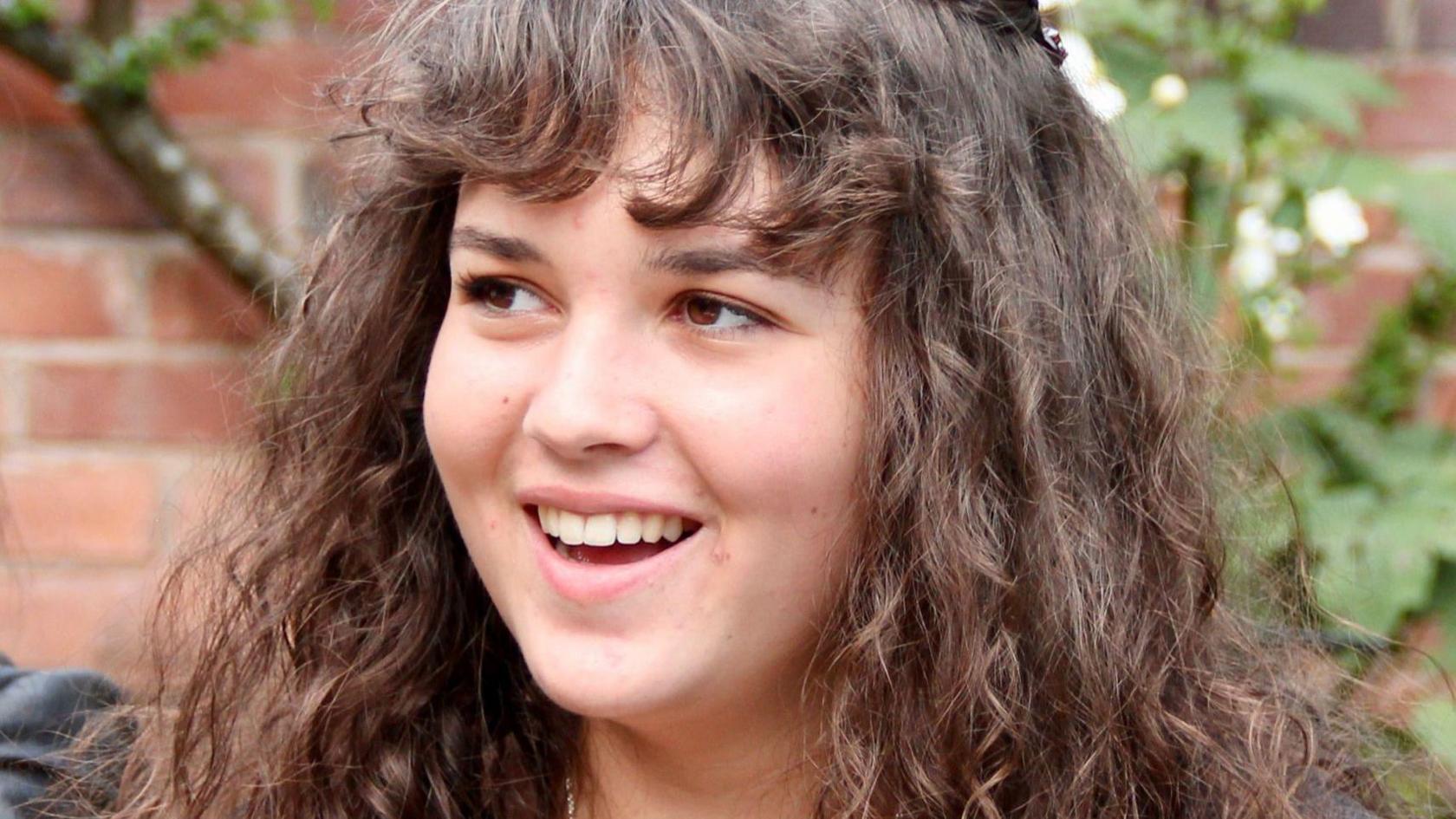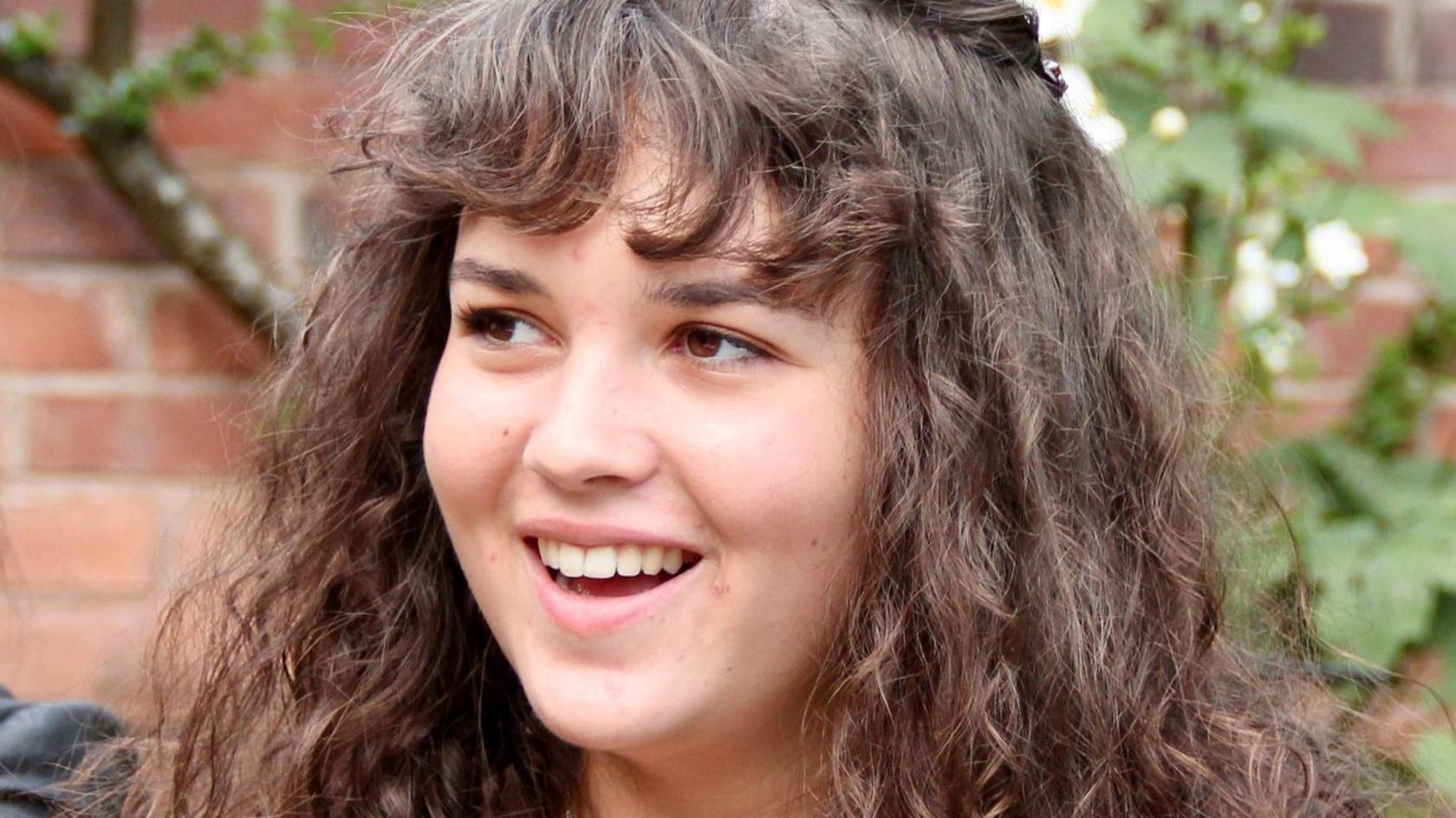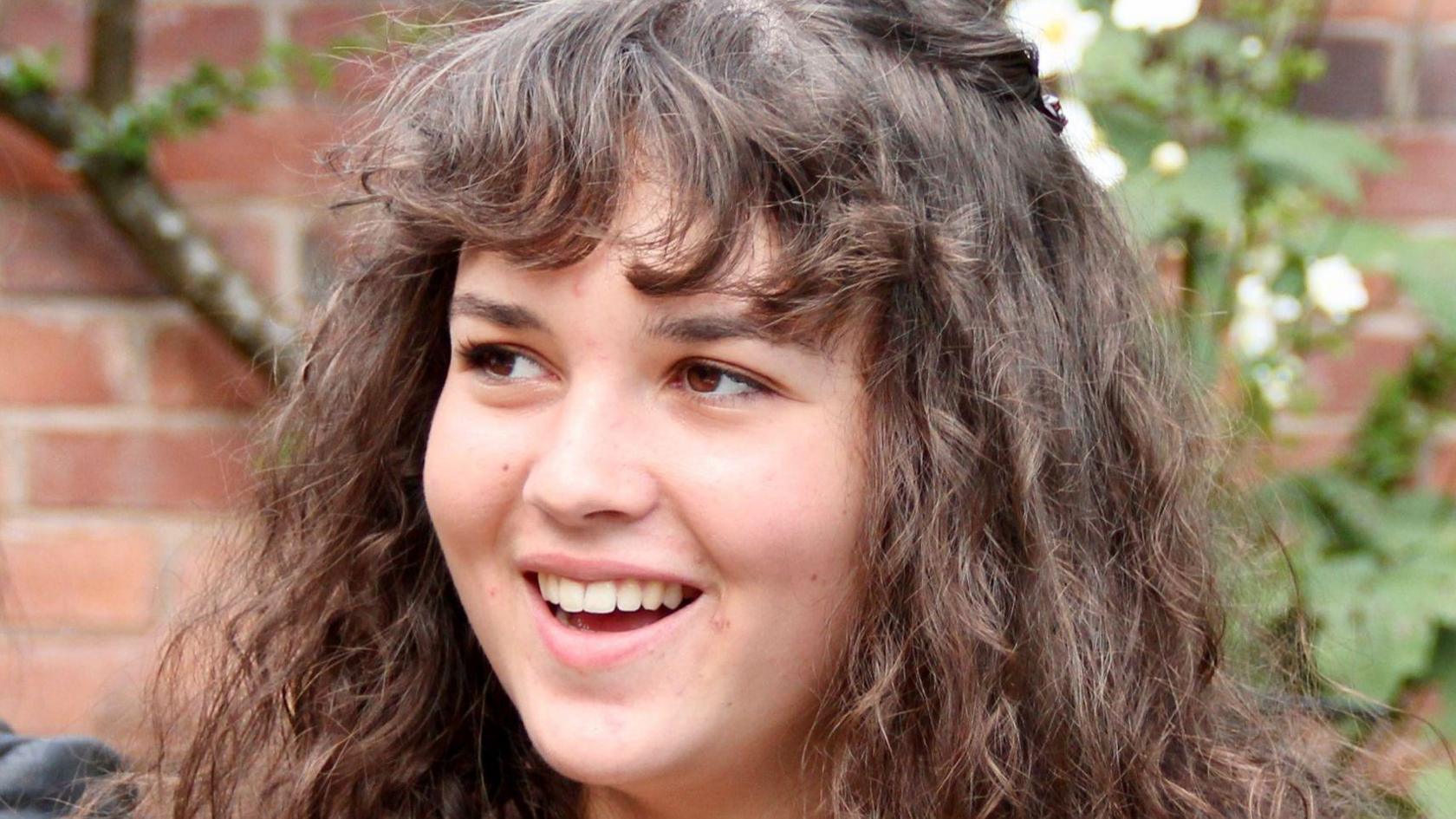Daughter's death 'wholly preventable', says mother

The mother of Maeve Boothby-O’Neill said the hospital failed its duty of care for her daughter
- Published
A mother whose daughter had myalgic encephalomyelitis (ME) said her death was "wholly preventable" and her local hospital failed in its duty of care.
Maeve Boothby-O'Neill, 27, had the condition since she was 13 and was being treated at the Royal Devon and Exeter Hospital before she died at home in Exeter on 3 October 2021.
Her mother, Sarah Boothby-O'Neill, told the inquest in the city: "I believe the evidence shows Maeve is likely to have died from malnutrition and dehydration because she had severe ME. I therefore believe her death was both premature and wholly preventable."
Lawyer for the hospital Rhys Hadden said the trust did not accept Miss Boothby-O'Neill's death was preventable.
"The trust disagrees that it failed in its duty of care or missed important opportunities," said Mr Hadden.
Ms Boothby-O'Neill said to the coroner: "I am hoping the inquest into her death will explain how she died.
"She did not want to die.
"Death from ME is extremely rare. Malnutrition in severe ME is common."
'Failed to save'
The hearing heard Miss Boothby-O'Neill had been admitted to hospital three times for treatment for malnutrition.
Her mother said: "I am hoping the inquest will try to ascertain how three separate admissions to the Royal Devon and Exeter Hospital failed to save her life."
The inquest heard how father-of-two Sean O'Neill, a journalist at The Times, said he did not seek to blame hospital doctors for the death of his eldest daughter.
"I have little faith in the ability of institutions to 'learn lessons'," said Mr O'Neill.
"Experience has taught me they tend to guard reputations, individual and corporate, rather than embarking on reform."
Ms Boothby-O'Neill said by March 2021, Maeve, who was her only child, was "unable to sit up, hold a cup of tea to her lips or chew" and that she could have been "treated by tube feeding in hospital".
She said the "appropriate form of tube feeding was never provided".
"At home it was impossible for me to get enough calories into Maeve from a liquid diet," she said.
Deterioration 'unnoticed'
"Without special nutritional intervention, Maeve's deterioration could only continue, yet her continual deterioration across and throughout three admissions seemed to go unnoticed by the hospital."
Mr O'Neill added: "In her last few weeks Maeve showed great courage. She knew there was no cure for ME and she faced up to the fact she was going to die.
"She did not want to die. She was desperate to live and was full of dreams and hopes.
"But nor did she want to live a life in the shadows, confined to bed being fed through a tube. I feel her loss every hour of every day."
Ms Boothby-O'Neill told the inquest Maeve did not want to die in hospital.
"If she had to die from starvation with severe ME, she wanted it to be in the familiarity of home and the care of those she loved," she said.
'Loving hug'
As her full-time carer, her mother told assistant coroner Deborah Archer she did everything she could to support her daughter and said this could happen to someone else.
"Maeve might have died. It's the 'how' I want on the record," she said.
"The whole system did not work for Maeve because she died."
Ms Boothby-O'Neill also told the inquest how her daughter wanted nothing more than a "loving hug".
However it was "too late for that" as hypersensitivity made all touch "excruciatingly painful".
The inquest continues.
- Published26 July 2024
- Published23 July 2024

- Published24 July 2024

- Published19 December 2023
